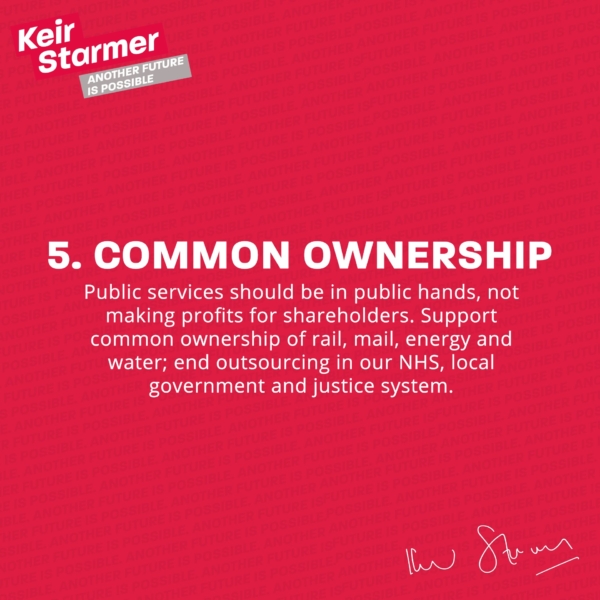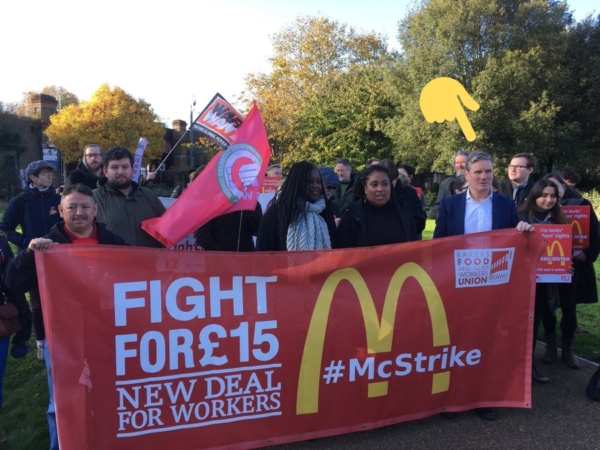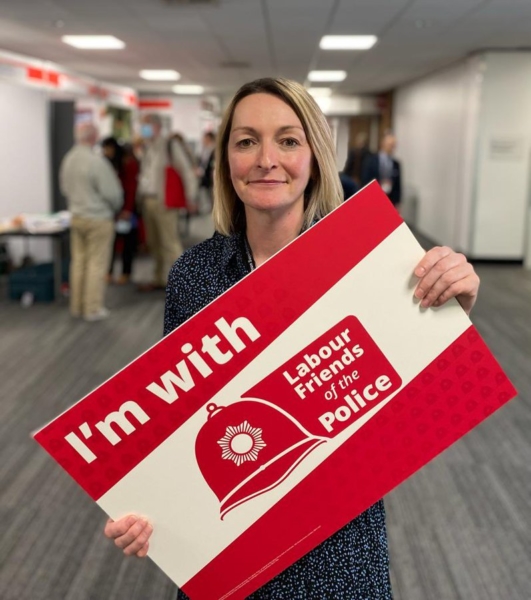Oh What a Circus – UK Labour Conference 2021
One thing you can guarantee about a Labour conference is that there will be disagreements, fall-outs, battles and behind-the-scenes plotting to undermine others. This year was no different but Keir Starmer got his plotting and undermining in early. In the days running up to conference he announced that he would be asking the NEC to endorse changes to rules about selection of MPs, elections and nominations of future party leaders. His main proposal was to scrap One Member One Vote and return to the highly gerrymandered ‘Electoral College’ system of votes. The Electoral College method was scrapped in 2014 following a 9 month long review and conversation within the party, leading to “The Collins Review” which became the party rules after a special conference was called to vote for this important step. This time it came from nowhere, Starmer and his backers brought it up in the days before the conference and expected it to get through without debate or considered consultation.
There were two main reasons for this, one is obviously that the new rule changes make it harder for the left to have a candidate in any future election. Now, any candidate must have the support of 20% of Labour MPs before they can stand. If these rules had applied in recent years Corbyn wouldn’t have made the ballot and Starmer would have been unopposed last year with no other candidates reaching the threshold to challenge him. But, more worrying, is that going back 40 years only one woman and no BAME candidates would have been able to stand.
But the timing of the announcement was more about kicking off the party scraps. Starmer and his deputy Angela Rayner are, let’s just say, not pals. Rayner is not seen as being of the left but she has significant neutral support and many on the left see her as an acceptable replacement for Keir. The opening day of conference was supposed to be about the big policy announcement from Rayner in her role as Shadow Secretary of State for the Future of Work. A package of reforms on worker’s rights unveiled by Rayner and Shadow Secretary of State for Employment Rights and Protections Andy MacDonald (the last remaining Corbynite in the shadow cabinet) were completely undermined and received little in the way of press, positive or otherwise. The media, quite rightly, concentrated on the last minute backroom deals being hatched re the new rule changes. Make no mistake, this was intentional, Starmer’s team don’t want the party to be seen as the party of trade unions, they wanted to clip Rayner’s wings and they wanted to completely undermine MacDonald. The leader who was elected on a promise to build unity in the party had made sure his conference was going to be about division and he got his blow in early – that’s how Labour’s conference began, with a stramash before even a baw was kicked.
Starmer would go on to secure a watered down version of his reforms and, importantly a vote to endorse new rules brought in following the EHRC report into the handling of anti-Semitism complaints in the party. Those votes are important as they will be implemented, being the will of the leadership and being a vote on rules and constitution. Other votes, not so much.
A great example of this was the vote on the socialist Green New Deal. Carried overwhelmingly by delegates, you would think that this would mean it was party policy, but no. Starmer had already ruled out a key part of the motion, renationalisation of energy companies, the day before the vote. Rachel Reeves, the Shadow Chancellor would take to the stage the very next day to announce the party’s new “green deal” policy, completely ignoring the vote, the agreed policy and, by extension, the will of the party membership.


It would be the same a couple of days later when it came to the vote on UNITE’s motion for a £15ph minimum wage and fair statutory sick pay. Starmer enthusiatically and openly campaigned for £15ph with MacDonald’s workers over two years ago. This vote would also be ignored and the union knew this, hence the high first offer. As any union negotiator will tell you, you have to set to set your demands high at the beginning of talks as this will be a long fight. Labours current policy of a minimum wage of £10ph has now been party policy for 5 years without any rise, despite that fact that inflation alone would bring that to £11.60 by now, £12.70 by the time the next election comes round.


One wonders what the conference is for if policy votes are not binding and don’t automatically become party policy. To return to Starmer’s rule changes, one was to reduce policy votes at conference from 20 to 12, they may as well have no policy votes as it is, obviously, just a show.
But it’s a show that clearly highlights that the “broad church”, the grand coalition of the left supposedly bringing together everyone from Methodists to Marxists, is now clearly divided into two distinct camps. After every conference hall debate or vote the factions retreat to venues for their fringe meetings. In these venues they feel at home, more comfortable and can be happy listening to people they agree with telling them things they already agree with. Sadly they are probably less far apart on policy and ideas than at previous times in history but Starmer’s team has decided to wage war on a “hard left” that barely exists in the party. To resurrect the great victories they imagine that they won in the 1990s against Militant they have to caricature the current left wing of the party as being the same or even more left than Militant. It really isn’t true. The policies of the left of the party are pretty mainstream reforms, hardly revolutionary Marxism, popular with Labour members, Labour voters and voters in general. They have created a cartoon enemy that doesn’t even resemble the members that they are prepared to vilify. In actual fact, rather than an enemy, these are their friends, the people rooted in their communities who carry the Labour banner and message into those communities and on to the doorsteps at election campaigns.
Starmer’s promise of unity when he was asking for members to elect him as leader is further away than ever and it is his actions, him and his team, that are making it so.
Friends was a bit of a theme of the conference. Most of us here in Scotland were surprised to find out that there was a group called “Labour Friends of Scotland” until reports of their fringe meeting appeared. I must admit to feeling a bit miffed to not have had an invitation to the launch event. Until now “Friends of…” have been groups set up in Solidarity with causes and nations abroad, Friends of Israel, Friends of Palestine, Friends of India etc. It seems that some in Labour are already looking at Scotland as a separate country that they can offer “friendship” to.
One spectacularly badly timed PR stunt was is support of Starmer’s new crime strategy. The curtain-twitching, snitching, policy announcement was accompanied by Labour members posing with banners declaring Labour to be “Friends of the Police” on the very day that the horrific details of Sarah Everard’s kidnap and murder by a police officer emerged.


Starmer’s law and order policy is a sure fire recipe for discrimination. It’s a Daily Mail story, of dangerous streets and people out there who want to steal your dogs, your neighbours are your enemy. And this will affect the BAME communities and young people most. Groups of young people gathering will be seen as a danger, cops will be called, ‘local intelligence’ will be gathered to portray them as anti-social. If a black person is seen meeting someone on a corner the Rear Window types will be shouting “drug dealers”, Travellers stopping on waste land or laybys will be followed and filmed. And that will not be an unintended consequence, it will be the aim of the policy, to divide rather than rebuild communities, finger pointing instead of conversations – Vote Labour – Grass Your Neighbour!
In Starmer’s big speech at the end of the conference he got in a good reply to hecklers in very early. “Shouting slogans or changing lives?” was his reply to the calls from the floor – he then preceded to rattle of a list of slogans backed by vague notions of things being better and nicer in “The Good Society” he was going to create, presumably from mud and ribs as there was little in the way of policy or clear ideas in a speech that lasted so long that his standing ovation was matched by the rush to the bogs.
Starmer has clearly been coached on his awkward stance, movement etc, his hand movements almost made sense, almost didn’t look rehearsed and, to be fair, he managed to pull of the choreography in a way that made him look like a slightly embarrassing uncle dancing at a wedding and not the full Alan Partridge that previous attempts to seem ordinary have produced.
In Scotland we got a wee mention too, alongside Wales when Starmer talked about this progressive union. Don’t know where he is been for the last decade but its hard to look South and see it how Starmer sees it, as progressive politics being protected by the very fact of the union. He confidently declares this in the week that furlough ends, Universal Credit is cut by £20 and people cant get to work because their petrol tanks are empty. He name-checked Mark Drakeford, Anas Sarwar, he failed to mention Northern Ireland at all, but he declared Labour as “the party of the union” and, unfortunately, he doesn’t mean a trade union. Sarwar has been trying to separate the party in Scotland from the binary constitutional debate but Starmer dropped him right in it, there was a loud and sustained cheer for this. I almost expected Ian Murray to take the stage in his union jack jaiket to send Labour back to where they were in 2015, linked to those images of unionism that they need to avoid if they are ever going to recover in Scotland. You see, despite Starmer trying to link the SNP to the Tories, the reason the SNP are popular in Scotland is because they are very much like Labour, not the Tories, specifically New Labour. The ground Labour want to step into to “win back Scotland” is already occupied.
To make sure we all got the message about the union, Starmer declared “WE ARE PATRIOTS” right after talking about the cheering the ENGLAND football team, oops!
As the speech and conference ended I must admit that my concentration was waning, there was lots of nice words, Safe, Secure, Better, Care, Stronger, Future, Together, all that stuff, all lacking any detail.
It was, as always, a circus, entertainment for the political types and a bit pointless, unless Starmer can really make this a platform to launch from. Polls and opinions don’t seem to offer much evidence for this. There will be, no doubt, a wee boost in polls for Labour following their conference, countered by the same for the Tories after their conference. I doubt very much whether Starmer will be polling any better when the season is over.
He won the leadership election easily with a promise to unite the factions of the party and pledges to continue the left manifestos of previous elections. But this conference shows that Keir Starmer’s version of unity is killing off the left, his vision of continuity is dumping all of his pledges. If the tactic is to present him as a nasty piece of work, deceptive and dictatorial, then it can be seen as a good conference for him and Labour. But, I suspect, this conference will only confirm to the lost voters they are trying to win back that Labour are lost in a sea of slogans and words, with little in the way of clear ideas and policy. If the question before this conference was “what do Labour stand for?” then it hasn’t been answered.
The main slogan for this conference was “Stronger, Future, Together”, I still don’t know what it means.

Help to support independent Scottish journalism by subscribing or donating today.

The media’s definition of the left changes every election. It used to be communists, then it was the militant and nowadays Ted Heath would be seen as a pinko. Whatever it is the Labour party seem to play along with it.
The Labour party are The Rolling Stones to the Tories’ Beatles. Following along behind, hoping to catch the zeitgeist, denying their true purpose.
Starmer has calculated that the UK (which means England) will only elect right wing governments who are “tough on” the weakest and most vulnerable in society.
He looks and sounds like a man fresh from a submissive meeting with Rupert Murdoch, keen to deliver whatever non-government he promised the wrinkly tortoise.
Wul,
Keith Richards’ grandparents were the founders of Walthamstow Labour Party! Mick Jagger’s feyther was a Tory and his son followed suit!
I swore in the early years of this century, having supported the left all my life, that after Tory Blair’s invasion of Afghanistan and Iraq, I would never vote Labour again.
Nothing has since happened to help me change my mind. I am one of millions of Scots who used to be automatic Labour supporters, whom they have lost forever. The fact that their party made a millionaire (Sarwar) their leader here, hasnie helped them.
Dougie,
You and me both ……. and the ‘100 000 old men in Glasgow’ whom Michael Kelly sneered at for voting for independence in 2014. Of course, he made no mention of ‘old’ women, such as my wife who had once upon a time voted Labour and now supports independence. (Incidentally, she loathes him! Kelly’s sister is in the same choir and we met her and her brother at the opera one night. My wife has a strong Perthshire accent and, as she was speaking, Kelly, to whom she had not even been introduced and was not part of the conversation, began to mock her accent.)
Yesterday’s Labour conference was the relaunch of ‘new’ Labour 2 …… and what was it Karl Marx said about history repeating itself?
Thanks for this pal. If it’s the same Michael Kelly who decades ago was LP of Glasgow, I knew him then. And didnae admire him politically, though I had a sneaking respect in his professionalism at least in putting the city back on the map. I don’t think you and I are far apart Alasdair.
Whatever happened to the Independent Labour Party? Did they get absorbed, or something?
https://en.wikipedia.org/wiki/Independent_Labour_Party
Anyway, this article further illustrates the problems with party politics, especially as failed instruments of democracy. The old commonplace that new parties will inevitably sink without trace under First-Past-the-Post has surely been disproved by the rise of the UKIP and Brexit parties (although of course their dubious-quality candidates and platform seemed to have been backed by dark money and corporate press). Rather than splitting a notional vote, LP vs ILP dogfights might enliven politics (just as reformist and revolutionary wings of civil rights movements have energised support and helped keep each other more honest). There seems little to choose from Starmerism and in-government Conservatism, so why not rock the boat (in England and Wales, if they want)? From my perspective, accommodation and appeasement and sliding towards a fake centre don’t work. Better to go on the attack. But then, both Conservatives and Labour seem centuries out of date, and both might be swept away very shortly as events overtake them, having shared responsibility for failures to plan for this century.
An online petition I was asked to sign claimed that 80% of the delegates at the Labour conference supported PR but it wasn’t passed because the unions were indifferent to it as was Starmer himself. (Something like that).
Tom, absolutely correct. 79.5% of constituency delegates voted in favour of replacing FPTP with PR (exact system to be decided by consultation). 95% of affiliate delegates voted against. Both the Tories and SNP must be delighted by that, as FPTP hands them Westminster seats well in excess of the popular vote.
Imbecilic isn’t it David? It seems nothing short of dictatorship gees party leaders up but what are the affiliates all about.
The ILP struggled on for a while after 1950 but by the hen they had lost its main stalwarts Maxton et al and failed to win seats or even many votes. The Conservatives meanwhile b came the biggest party in Scotland and remained so until 1964. The SNPs rise began in 1970 fell back in 1979 and rose again in the 80s but we’re stuck in a plateau until 2015 Change is ongoing and I wouldn’t be so sure that Labour won’t make a come back.